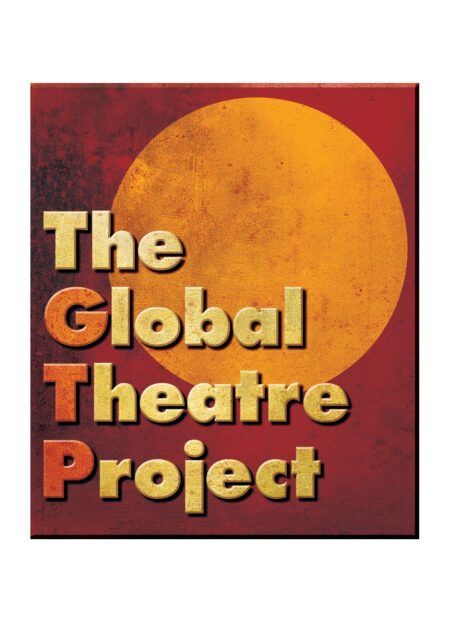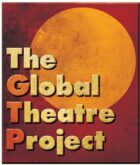Theatre In Protest and Community
[originally posted at www.culturalweekly.com]
As we watch the live feed from Cairo’s Tahrir Square, I am brought back to similar scenes last December, as the capital of Belarus erupted in protests against a presidential election that international observers said was falsified. Over 1000 people were beaten and thrown into jail. Among them were members of the Belarus Free Theatre, a theatre that began in 2005 during the second term of President Alexander Lukashenko as a way to protest the oppression and censorship of his Presidency.
Theatre producer Natalia Kolyada, her husband, playwright Nikolai Khalezin, and other members of the company staged their performances in secret to evade the state police. The Belarus Free Theatre was founded to give voice to non-government sanctioned playwrights, to reflect the modern day truths of Belarus and to connect with the international community through sharing contemporary Belarusian theatre. As a result they have been supported by such prominent figures as the late Harold Pinter, Tom Stoppard, Tony Kushner, Steven Spielberg, Ian McKellen, Vaclav Havel and Mick Jagger.
The Belarus Free Theatre is a “project” which will be ended when the situation in Belarus changes from dictatorial regime to democracy (as they say on their website). Having fled the country the theatre members arrived in NYC, where they performed at Under The Radar Festival. As a result of this action, and the voice they have been giving to their disappeared colleagues and friends as well as the current situation in their country, return would likely guarantee them a 15-year imprisonment. Currently they are being given time to assess the situation by having been offered performance opportunities in Chicago through the end of February. Their next steps are unsure, but what is sure is that this is a group of some of the most courageous artists in the world who love their country so deeply they have risked everything to save it from oppression. This love has left them without a home, albeit with a growing concern and involvement from the international community. It would be hard to separate the fact of their very public cry in New York, their meetings with Hillary Clinton, and the rallying of the international theatre community behind them, from the decision of last week for the US to put sanctions and restrictions on Belarus.
“Being artists, we have a hunger to produce and perform again, but we also have a duty to speak for our country,” Ms. Kolyada said in the New York Times. “As moral people, we need to scream, and we appeal to artists, governments and people of good will all over the world to join us and scream on our behalf.”
As Artistic Director of The Global Theatre Project, I feel compelled to join the hundreds of artists in this country and abroad who are raising awareness for the Belarus Free Theatre. So we are holding an event in February – you can reserve a ticket here. The event will begin with a few words from Amnesty International about the situation in Belarus and what can be done, and be followed by a staged reading of Being Harold Pinter with a cast headed by James Cromwell and Ed Harris with a reception following.
As Artistic Director of The Global Theatre Project, I feel compelled to join the hundreds of artists in this country and abroad who are raising awareness for the Belarus Free Theatre. So we are holding an event in February – you can reserve a ticket here. The event will begin with a few words from Amnesty International about the situation in Belarus and what can be done, and be followed by a staged reading of Being Harold Pinter with a cast headed by James Cromwell and Ed Harris with a reception following.
As an American I will never personally know the “scream” Natalia and her company members express through their work. I recognize that, no matter how difficult we feel our position as artists in this country is, the freedom to express ourselves without fear of retaliation also defines the texture of our work.So what is the “scream” I feel as an artist and an American? For me it is a clear obligation: to be as insistent and courageous as the members of the Belarus Free Theatre in the creation of my work, to participate in shifting the conversation in this country to a more informed definition of the value of art and to assure that my work expands its impact deep into the heart of the communities worldwide.The situation in Belarus is a horrendous one. As we engage with the Belarus Free Theatre, the conversation which should be explored must not stop at bringing awareness to the circumstances, which are atrocious, but expand to an exploration of how did these circumstances arise in the first place? How did a small band of performers find themselves on the world stage and in self-imposed exile from a country that feels threatened by their work?
My simple response is because art has power.
We have been complacent in this country with regards to our relationship to our art and culture. We have accepted the arts being delegated to a corner of our national conversation and pulled out only at times when there is a threat to the NEA or a need to defend the work of individual artists from social attack. We have no idea how strong our voices are as a collective group or who our community allies are because we, generally, have a tendency to feel isolated and separated as “artists” with no “power” or because we don’t, frankly, have enough knowledge and respect for the communities in which we do our work.
This brings me to the center of my personal work and that of The Global Theatre Project.Which is community engagement. As we move forward into a world that is shrinking and becoming more volatile facing economic challenges and power shifts, what artists offer their communities becomes even more essential. But the work cannot be created from the position of “my work”.. “my art”.. There must be a “we” embracing artist and community for the process of creation and sharing. Theatre has the opportunity, right now, to become even more relevant in an age where technology brings us together even as it diminishing our capacity for true intimacy. Theatre’s relevance depends on engaging and involving that community in the creative process. I am not talking about the old definition of community theatre; I am talking about community engagement.. Asking more of our audiences and giving more to them.
I can only feel connected to the Belarus Free Theatre, and to the protesters in Egypt, when I allow myself to feel a connection to the community we share at this exact moment. Then I can “scream” in my way, as we join together to support human dignity.



